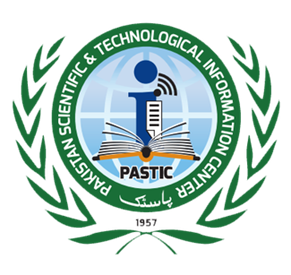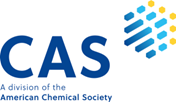From Bench to Bedside: The Urgent Need for Translational Research in Pakistan
Translational Research in Pakistan: From Bench to Bedside
DOI:
https://doi.org/10.69750/dmls.02.07.0140Keywords:
Translational, Biomedical, Clinical, Policy, PakistanAbstract
INTRODUCTION
The past two decades have witnessed tremendous advances in biomedical sciences worldwide, ranging from genomics and proteomics to regenerative medicine and artificial intelligence–driven diagnostics. Yet, despite these breakthroughs, their clinical translation in Pakistan remains minimal. The concept of translational research bridging laboratory discoveries with practical medical applications has become the backbone of modern healthcare systems in developed countries. Unfortunately, in Pakistan, the “bench to bedside” pathway is fragmented, underfunded, and poorly integrated into policy frameworks. This gap poses significant challenges for patient care, healthcare innovation, and the global competitiveness of Pakistani medical research [1].
The Current Landscape:
Pakistan’s biomedical research output has grown in quantity, but its quality and translational impact remain limited [2]. Most studies are observational, retrospective, or descriptive, with a lack of interventional trials or mechanistic research that could directly influence clinical practice.
Universities and research centers often work in silos, disconnected from hospitals and pharmaceutical industries. Furthermore, limited funding for clinical trials, insufficient regulatory support, and scarce collaboration between academia and industry hinder the country’s ability to move discoveries from laboratory benches into hospitals and clinics [3].
Why Translational Research Matters:
Translational research is not merely an academic pursuit; it directly affects the nation’s healthcare outcomes. With Pakistan facing a heavy burden of non-communicable diseases such as diabetes, cardiovascular illnesses, and cancers, research designed to generate context-specific diagnostic tools, therapies, and preventive strategies is urgently needed [4].
For instance, genetic variations in the Pakistani population influence drug metabolism, yet pharmacogenomic research is still underdeveloped. Similarly, despite increasing antibiotic resistance, few local studies progress beyond surveillance to developing novel therapeutic strategies. Without translational pipelines, Pakistan risks remaining dependent on imported solutions that may not suit its socio-economic or genetic context [5].
Barriers to Progress:
Several structural barriers impede progress. First, research funding in Pakistan remains less than 0.3% of GDP, far below international benchmarks [6,7]. Second, there is a lack of well-established institutional review boards and ethics committees capable of handling complex translational studies. Third, weak intellectual property frameworks discourage industry–academia partnerships. Finally, the absence of centralized biobanks, advanced molecular laboratories, and trained clinician-scientists creates a disconnect between discovery and implementation [8].
The Way Forward:
To close the gap, Pakistan must adopt a multipronged approach. Universities and teaching hospitals should develop joint translational research units that integrate basic science laboratories with clinical departments. Public–private partnerships must be incentivized to encourage pharmaceutical industries to invest in clinical trials and drug development [9-11].
Government funding agencies should earmark dedicated grants for translational projects, particularly those targeting diseases with a high national burden. Furthermore, the development of regulatory pathways for clinical trials and biotechnology startups will strengthen trust and innovation. Importantly, training programs must be designed to produce clinician-scientists who can function both as healthcare providers and as research innovators [12-13].
CONCLUSION
The promise of translational research in Pakistan is immense but remains largely untapped. To truly serve patients, medical discoveries must not remain confined to journal pages; they must find their way into hospital wards and community clinics. A strong translational research ecosystem can transform Pakistan’s healthcare, reduce dependence on imported solutions, and foster global competitiveness. The time to act is now before the gap between scientific discovery and clinical application becomes irreparable.
Downloads
References
Mahmood A, Rehman N, Huang X, Riaz I. Barriers to undergraduate medical students’ research engagement in Pakistan: a qualitative exploration. BMC Med Educ. 2025;25(1):592. doi:10.1186/s12909-025-07185-9.
Mumtaz H, Haider SMA, Neha F, Saqib M, Nadeem A, Seikha Z. Clinical trials landscape in a lower middle income country (Pakistan): a review of progress and challenges. J Clin Transl Sci. 2023;8:e7. doi:10.1017/cts.2023.701.
Khan ZA, Muzzamil U, Ahsan K, Khan A, Jawaid M. Barriers of conducting and completing research in Pakistan among doctors: a cross-sectional survey. Pak J Med Sci. 2025;41(3):886-90. doi:10.12669/pjms.41.3.10424.
Jahan S, Zahir S, Khan K, Moez A, Khan E, Khan AZ. Are the discoveries directed to applications? Translating the status of translational research in Peshawar, Pakistan. Int J Pathol. 2024;22(3):110-17.
Hussain SA. Overcoming barriers to meaningful research in Pakistan: charting a path forward. Anaesth Pain Intensive Care. 2024;28(4):611-5. doi:10.35975/apic.v28i4.2497.
Rao S. The importance of basic, translational, and clinical research: focus on Pakistan. Innovapath. 2025;1(1):1-8.
Qidwai W. Translational research and complexity of clinical practice: issues, challenges, and way forward. J Coll Physicians Surg Pak. 2016;26(6):453-4.
Umar B. Impact on healthcare research in Pakistan: clinician–researcher dual role experiences. JHRLMC. 2025;9(2):101-7.
Shah RC, Ali S, Fatima N, Ahmed R, Khan H. Improving quality and efficiency of translational research: an environmental scan. Transl Sci J. 2022;4(1):25-34.
Coller BS. Embedding a commitment to equitable global access into basic and early phase translational research. J Clin Transl Sci. 2025;9(1):e88. doi:10.1017/cts.2025.88.
Akhund SA. Challenges and solutions of using animal models in translational biomedical research: context for Pakistan. J Coll Physicians Surg Pak. 2023;33(5):565-70.
Sahoo PM, Rout HS. Health system challenges in Pakistan: rural–urban disparities and workforce shortages. Global Health Expenditure Database Rep. 2023;1(1):1-10.
Iqbal FM, Delie F, Iqbal MO, Gul S, Kanwal S, Muzammal M, et al. New insights in nanocrystal technology chemotherapeutic drugs targeting cancer with a translational research paradigm. Am J Transl Res. 2025;17(8):5829-47. doi:10.62347/ETMK5291.
Wahid E, Azhar A, Qaisar M, Hamid M, Tanveer F, Chaudhry MA. The need for research mentorship and publication culture in medical schools in Pakistan. Khyber Med Univ J. 2025;17(2):118-22.
Downloads
Published
Data Availability Statement
Translational, Biomedical, Clinical, Policy, Pakistan






















